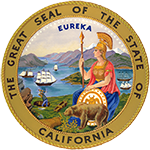EverSafe Newsletter
SENIOR FINANCIAL PROTECTION NEWS
Providing thought-provoking articles, commentary and general information on issues related to aging and financial health.
Age Is Just a Number
…BUT IT MATTERS IN FINANCIAL DECISION-MAKING
Many of us don’t worry about whether our ability to manage our money diminishes as we age. But in fact, as we enter middle age, our cognitive abilities evolve and undergo transformations. Memory, insight, and executive function (planning and organization skills) can all be affected. While some skills may remain strong, changes in cognition can influence how we process financial  information, assess risks, and make decisions. A good deal of research has focused on this subject. One study, chronicled in a New York Times piece, analyzed adults’ propensity to make financial mistakes. It found that a person’s financial decision-making ability peaks at age 53, or more generally, in their 50s. A recent study, published earlier this month, found that older adults, age 60 and up, are more likely to be influenced by “impulsive financial preferences” than their younger counterparts, age 18-36. The study looked at the behavior of 76 individuals from the older and younger groups, matched them on gender, educational level, and health, and made sure they were free of dementia. They completed a decision-making task in which they were required to make a series of choices about two different options: an impulsive one which resulted in receiving a smaller amount of money immediately; or a more restrained one which meant receiving a larger amount of money after a delay. They were also asked to observe outcomes of others who made the same financial decision. The results demonstrated that the older participants were more susceptible to social influence and more likely to change their choice – especially after observing another individual consistently select the impulsive option. In contrast, younger adults in the sample were more resistant to such influence, tending to stick with their original preference even after seeing someone repeatedly opt for the impulsive option.
information, assess risks, and make decisions. A good deal of research has focused on this subject. One study, chronicled in a New York Times piece, analyzed adults’ propensity to make financial mistakes. It found that a person’s financial decision-making ability peaks at age 53, or more generally, in their 50s. A recent study, published earlier this month, found that older adults, age 60 and up, are more likely to be influenced by “impulsive financial preferences” than their younger counterparts, age 18-36. The study looked at the behavior of 76 individuals from the older and younger groups, matched them on gender, educational level, and health, and made sure they were free of dementia. They completed a decision-making task in which they were required to make a series of choices about two different options: an impulsive one which resulted in receiving a smaller amount of money immediately; or a more restrained one which meant receiving a larger amount of money after a delay. They were also asked to observe outcomes of others who made the same financial decision. The results demonstrated that the older participants were more susceptible to social influence and more likely to change their choice – especially after observing another individual consistently select the impulsive option. In contrast, younger adults in the sample were more resistant to such influence, tending to stick with their original preference even after seeing someone repeatedly opt for the impulsive option.
SCAM ALERT
“BRUSHING” – AN E-COMMERCE SCAM
A new scam that has become increasingly common is called “brushing.” How does it work? Boxes of merchandise from Amazon or other companies arrive at your door. The problem? You never ordered these goods. While it may feel like you have won the lottery, it’s possible you are the victim of a scam called brushing. The Better Business Bureau (BBB) warns consumers that this  fraud can put consumers at risk. If items you haven’t ordered suddenly appear at your residence, addressed to you, it’s likely that scammers found your address and possibly more personal identifying information online, either in a public forum or on the Dark Web. The senders, often foreign companies, are third-party sellers who then make it appear that you wrote a glowing online review of their merchandise and that you are a verified buyer of that merchandise. The phony review is then published to improve their products’ ratings – a marketing endeavor which usually does improve sales, even if the purchases are based on phony transactions. The scam also exposes consumers to “porch pirates.” Crooks use other people’s mailing addresses and accounts, and then wait and watch for the delivery of the package so they can steal it before the resident gets home. How can you avoid brushing? First, if you receive a mysterious package that you didn’t order, make sure that one of your close friends or relatives didn’t send you a gift. Then notify the retailer, or their Customer Service representative, about the problem. You should make an effort to return the package, if you can do so without incurring charges.
fraud can put consumers at risk. If items you haven’t ordered suddenly appear at your residence, addressed to you, it’s likely that scammers found your address and possibly more personal identifying information online, either in a public forum or on the Dark Web. The senders, often foreign companies, are third-party sellers who then make it appear that you wrote a glowing online review of their merchandise and that you are a verified buyer of that merchandise. The phony review is then published to improve their products’ ratings – a marketing endeavor which usually does improve sales, even if the purchases are based on phony transactions. The scam also exposes consumers to “porch pirates.” Crooks use other people’s mailing addresses and accounts, and then wait and watch for the delivery of the package so they can steal it before the resident gets home. How can you avoid brushing? First, if you receive a mysterious package that you didn’t order, make sure that one of your close friends or relatives didn’t send you a gift. Then notify the retailer, or their Customer Service representative, about the problem. You should make an effort to return the package, if you can do so without incurring charges.
GOVERNMENT / LEGISLATIVE UPDATE
CA BILL ON BANK’S LIABILITY FOR FRAUD – REJECTED BY GOV
The California Legislature approved a bill several weeks ago that would strengthen exploitation protections for vulnerable adults by clarifying the duties of financial institutions to safeguard against fraud. Many agree that California’s law on these duties is  currently unclear, which has led to conflicting court rulings with respect to the standard that should be used for holding a financial institution accountable. Senate Bill 278 is legislation that passed both the Assembly and the Senate in California and was awaiting the governor’s signature. The bill clarified that victims of financial elder abuse would be able to hold institutions accountable when the bank reasonably should have suspected the fraud but assisted in the transfer anyway. The bill included a mandatory three-day hold for suspicious transactions. Over the weekend, however, Governor Newsom declined to sign the bill. He expressed concern that although the intent of the bill was commendable, there would be unintended consequences − including the delay of legitimate transactions as well as restricted access to funds that would compromise the independence of account holders.
currently unclear, which has led to conflicting court rulings with respect to the standard that should be used for holding a financial institution accountable. Senate Bill 278 is legislation that passed both the Assembly and the Senate in California and was awaiting the governor’s signature. The bill clarified that victims of financial elder abuse would be able to hold institutions accountable when the bank reasonably should have suspected the fraud but assisted in the transfer anyway. The bill included a mandatory three-day hold for suspicious transactions. Over the weekend, however, Governor Newsom declined to sign the bill. He expressed concern that although the intent of the bill was commendable, there would be unintended consequences − including the delay of legitimate transactions as well as restricted access to funds that would compromise the independence of account holders.
Centenarian Celebrates 100 With Music
ROGER WONSON’S BAND INCLUDES SENIOR LIVING STAFF
When Roger Wonson turned 100 on April 20th of this year, the staff at his senior living facility in Massachusetts threw him a party – which included a performance by his newly formed band, “The Current Voltage.” Wonson, a retired engineer, started  playing drums for bands in the 1930s and now plays the saxophone as well. He put together his jazz and rock and roll band with fellow senior residents and staffers. The great-grandfather of nine said he was proud not to fit the stereotype of how an older man should behave. Wonson offered a few words of wisdom at the celebration on ways to live a long, full life: “1. Everything in moderation; 2. The power of positive thinking can strengthen the immune system; and 3. [Use] empathy and compassion, to build a better life and healthy relationships.”
playing drums for bands in the 1930s and now plays the saxophone as well. He put together his jazz and rock and roll band with fellow senior residents and staffers. The great-grandfather of nine said he was proud not to fit the stereotype of how an older man should behave. Wonson offered a few words of wisdom at the celebration on ways to live a long, full life: “1. Everything in moderation; 2. The power of positive thinking can strengthen the immune system; and 3. [Use] empathy and compassion, to build a better life and healthy relationships.”



